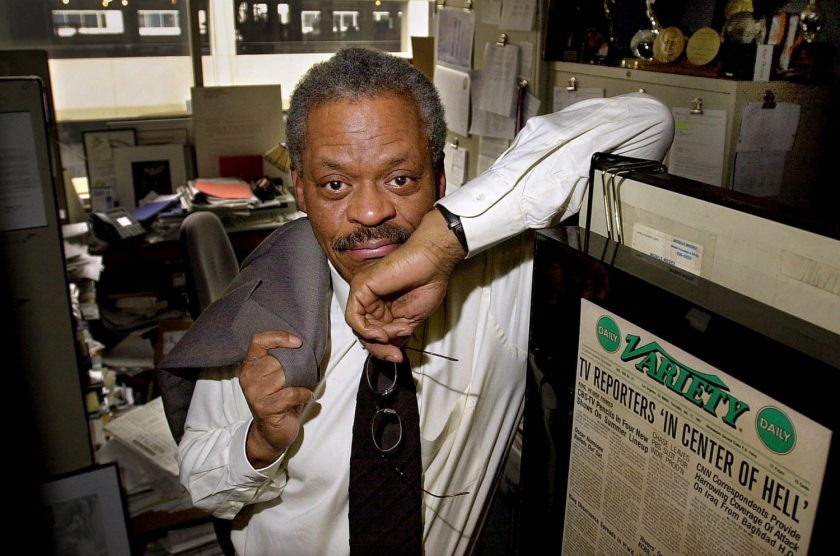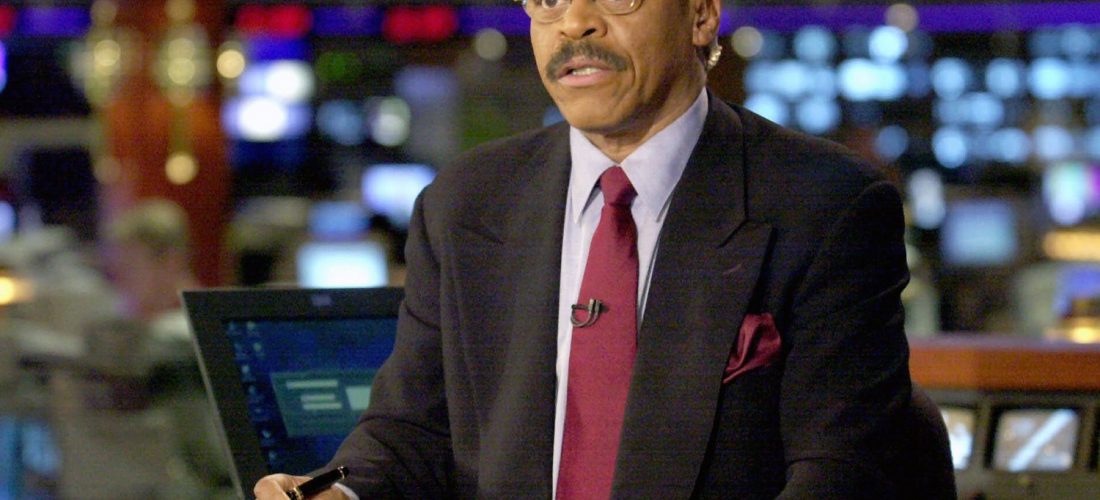NEW YORK (AP) — Bernard Shaw, former CNN anchor and a pioneering Black journalist remembered for his blunt question at a presidential debate and calmly reporting the beginning of the Gulf War in 1991 from Baghdad as it was under attack, has died. He was 82.

He died of pneumonia, unrelated to COVID-19, on Wednesday at a hospital in Washington, according to Tom Johnson, CNN’s former chief executive.
A former CBS and ABC newsman, Shaw took a chance and accepted an offer to become CNN’s chief anchor at its launch in 1980. He later reported before a camera hurriedly set up in a newsroom after the 1981 assassination attempt on President Ronald Regan.
He retired at age 61 in 2001.
As moderator of a 1988 presidential debate between George H. W. Bush and Michael Dukakis, he asked the Democrat — a death penalty opponent — whether he would support that penalty for someone found guilty of raping and murdering Dukakis’ wife Kitty.
Dukakis’ coolly technocratic response was widely seen as damaging to his campaign, and Shaw said later he got a flood of hate mail for asking it.
“Since when did a question hurt a politician?” Shaw said in an interview aired by CSPAN in 2001. “It wasn’t the question. It was the answer.”
Shaw memorably reported, with correspondents Peter Arnett and John Holliman, from a hotel room in Baghdad as CNN aired stunning footage of airstrikes and anti-aircraft fire at the beginning of U.S. invasion to liberate Kuwait.
“I’ve never been there,” he said that night, “but this feels like we’re in the center of hell.”
The reports were crucial in establishing CNN when it was the only cable news network and broadcasters ABC, CBS and NBC dominated television news. “He put CNN on the map,” said Frank Sesno, a former CNN Washington bureau chief and now a professor at George Washington University.
“In all of the years of preparing to being anchor, one of the things I strove for was to be able to control my emotions in the midst of hell breaking out,” Shaw said in a 2014 interview with NPR. “And I personally feel that I passed my stringent test for that in Baghdad.”
Shaw covered the uprising in China’s Tiananmen Square in 1989, signing off as authorities told CNN to stop its telecast. While at ABC, he was one of the first reporters on the scene of the 1978 Jonestown massacre.
On Twitter, CNN’s John King paid tribute to Shaw’s “soft-spoken yet booming voice” and said he was a mentor and role model to many.
“Bernard Shaw exemplified excellence in his life,” Johnson said. “He will be remembered as a fierce advocate of responsible journalism.”
